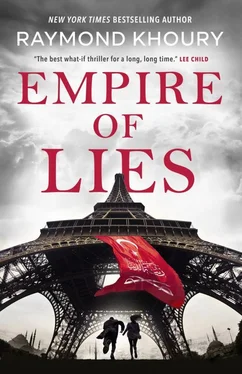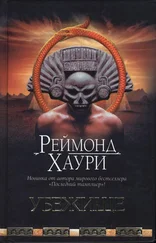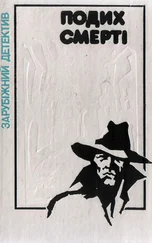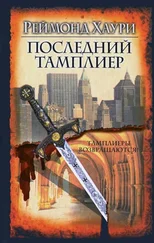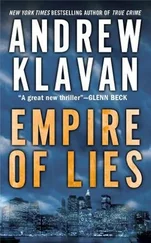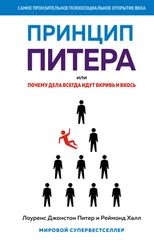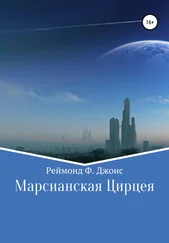Реймонд Хаури - Empire of Lies
Здесь есть возможность читать онлайн «Реймонд Хаури - Empire of Lies» весь текст электронной книги совершенно бесплатно (целиком полную версию без сокращений). В некоторых случаях можно слушать аудио, скачать через торрент в формате fb2 и присутствует краткое содержание. Город: New York, Год выпуска: 2019, ISBN: 2019, Издательство: Forge Books, Жанр: Альтернативная история, Триллер, на английском языке. Описание произведения, (предисловие) а так же отзывы посетителей доступны на портале библиотеки ЛибКат.
- Название:Empire of Lies
- Автор:
- Издательство:Forge Books
- Жанр:
- Год:2019
- Город:New York
- ISBN:978-1-250-21096-8
- Рейтинг книги:3 / 5. Голосов: 1
-
Избранное:Добавить в избранное
- Отзывы:
-
Ваша оценка:
- 60
- 1
- 2
- 3
- 4
- 5
Empire of Lies: краткое содержание, описание и аннотация
Предлагаем к чтению аннотацию, описание, краткое содержание или предисловие (зависит от того, что написал сам автор книги «Empire of Lies»). Если вы не нашли необходимую информацию о книге — напишите в комментариях, мы постараемся отыскать её.
Empire of Lies — читать онлайн бесплатно полную книгу (весь текст) целиком
Ниже представлен текст книги, разбитый по страницам. Система сохранения места последней прочитанной страницы, позволяет с удобством читать онлайн бесплатно книгу «Empire of Lies», без необходимости каждый раз заново искать на чём Вы остановились. Поставьте закладку, и сможете в любой момент перейти на страницу, на которой закончили чтение.
Интервал:
Закладка:
There had been many, many wars in the years since Vienna had been saved. Wars that hadn’t happened in his world, after the Ottoman conquest of Europe.
There had been countless conflicts pitting one European nation against another. There had been bloody revolutions in many countries, notably in France, America, and, most disastrously, Russia. The subsequent rise of communism had brought on a whole new onslaught of death and suffering. In Ukraine alone, four million people had died in the early 1930s as a result of Stalin’s campaign to crush its people’s nationalist aspirations. Deaths under communism were even higher in China and Cambodia.
The Great Terror and the purges. Two world wars. The Holocaust. The Armenian genocide. Vietnam. Nuclear bombs—he had to look up what they were—in Japan.
He felt numb as the number of deaths just kept rising. How many had died since he buried Nisreen? Fifty million? A hundred million? More?
It was staggering, and it left Kamal almost unable to breathe.
He reeled with regret and a hollowness that wanted to suck him into it and wipe him off the face of the earth.
One question battered him repeatedly: Had he made a gargantuan and unspeakably tragic mistake?
He knew the Ottoman campaign to conquer Europe hadn’t been without bloodshed. Many had died as the sultan’s army had swept across the continent. The war with Russia decades later had also been bloody, and everyone knew that a war with the Americans, especially given the sparring over energy, was certainly a possibility. But it didn’t lessen the sense of horror Kamal felt at what had befallen the planet in this timeline, after the Ottomans had failed to take Vienna.
And it was all his fault.
78
He spent the night wandering the city aimlessly, unable to sleep, stopping occasionally to rest before moving on, not really registering anything, just lost inside his own thoughts, haunted by a crushing sense of guilt.
At one point, as if guided by some cruel, twisted hand, he found himself waiting to cross the street at a corner, and his tired eyes latched onto a word on a street sign affixed onto the side of a building: KOLSCHITZKYGASSE.
Kolschitzky Street.
He stood there, foggy-brained, as the word sunk in. Then his eyes floated upward to find something else: a large statue, at first-floor level, mounted on a plinth that projected from the corner of the building.
It was Kolschitzky. He was dressed in Ottoman garb and held a coffeepot in one hand and a tray in the other. The pose depicted him standing tall while pouring coffee into a small cup with an assortment of swords, battle-axes, and shields by his feet, presumably in commemoration of his heroic role in saving the city.
The sight only served to deepen his anguish.
As he drifted through the city, he began to wonder whether he should fix his mistake by going back and trying to undo what he did. His thoughts accelerated, running through different scenarios, desperately playing out the ramifications of each.
He could go back, of course. But to what date? He couldn’t go back to any time that he and Nisreen had already gone to. Would he go back to the early days of the siege? To when Taymoor had arrived, perhaps even get there before him? Or go to Istanbul even earlier and find Rasheed there? What would he do there? Warn him? Tell him that he and Nisreen were coming for him in the future? Could he even think of doing that, of betraying her that way? Or would it change everything if he did? Would Rasheed alter his plans in some way and change the future timeline so that Kamal and Nisreen never met or even never existed?
It was all too mind-boggling to think about, and, in his exhausted state, it sent him deeper and deeper into despair. He found it impossible to escape the dark thoughts he was drowning in.
Thoughts of suicide even crept into his mind.
It was many hours before he found himself in familiar territory again.
The Naschmarkt was busy, but the crowd was thinning in tandem with the sun’s imminent curtain call. There were a couple of customers at the kebab stall, but as soon as Orhan saw him, his jovial expression faded and turned to concern. He still managed a warm smile and waved him over.
Orhan offered Kamal another meal and joined him at a small table while the stall enjoyed a lull before the evening rush. Alternating sips from a cup of coffee with pulls from a cigarette, he watched Kamal curiously as his new friend picked at the food.
“What’s wrong, brother?” he asked him. “You look like the sky’s fallen on top of you.”
Kamal shrugged. “It feels that way.”
Orhan looked at him pensively. “It’ll get better; you’ll see. Life is good here. Much better than back home. You’ll be glad you came here.”
Kamal appreciated the sentiment, but he knew that Orhan obviously had no idea what was really going through his mind. “I thought I would,” he said, his voice feeble. “I’m not so sure anymore. Maybe my world, for all its faults, was… better.”
“No,” Orhan said. “It wasn’t. Believe me.”
Kamal looked away, taking in the expansive rows of stalls spreading out in all directions, but didn’t reply.
Orhan leaned in and pressed on. “Listen to me, Kamal. Our world… it’s still got a long way to go. And that’s if it ever gets there.”
“Gets where?”
“Here.” He indicated the world around him with his arms. “To everything you see around you.”
He took a deep drag off his cigarette, then squashed it into a tin ashtray. “This part of the world,” he told Kamal, “they’ve had their wars. They’ve had their revolutions. They’ve fought to abolish monarchy and slavery, to separate government from religion. They’ve fought for their freedom. And they’ve paid heavily for it. Millions have died fighting for freedom. Which is why they know its value. Life here has a value.” His tone was insistent. “A person has rights. We have rights. All of us. Me, him, her,” he said, pointing at random people wandering through the market. “We’re all equal. Rich or poor—it doesn’t matter. Whether your great-grandfather was born here or you’re fresh off the boat like me… everyone’s freedom and dignity is respected—and defended. Maybe not always. Maybe not by everyone. It’s not perfect… but it’s much better than anything we have. That’s why I’m here. Where we come from… our part of the world… they’re still way behind. They’re still going through their wars and their revolutions, and right now life there is worthless. A soldier can drag you out of your bed and make you disappear, and no one can do anything about it. A thousand people can be gassed to death in a village, and no one can stop it. And who knows? Maybe they’ll never get there. Maybe they’ll stick to their tribal ways forever. Either way, it doesn’t matter to me. I’ll be long gone by then.” He chuckled. His eyes took on a faraway look. “I had a good business in Istanbul, you know. I had a restaurant and a small shop. We were doing okay. But the country was changing. So I left. But even with nothing but this little stall, it’s still a much better life here. You’ll see.”
“How was it changing?” Kamal asked.
“Years ago, we were different from our Arab neighbors. Right? We were. We were a democracy. A real one. We had a free press. Religion and government were kept well apart. We were the modern, civilized bridge between the West and the Middle East; we were on our way to joining the European Union. Then we elected a za’eem, ” he said, using the Turkish word for strongman, “who had other ideas and locked up anyone who dared to disagree. That’s when I left. When it got ugly.”
Читать дальшеИнтервал:
Закладка:
Похожие книги на «Empire of Lies»
Представляем Вашему вниманию похожие книги на «Empire of Lies» списком для выбора. Мы отобрали схожую по названию и смыслу литературу в надежде предоставить читателям больше вариантов отыскать новые, интересные, ещё непрочитанные произведения.
Обсуждение, отзывы о книге «Empire of Lies» и просто собственные мнения читателей. Оставьте ваши комментарии, напишите, что Вы думаете о произведении, его смысле или главных героях. Укажите что конкретно понравилось, а что нет, и почему Вы так считаете.
